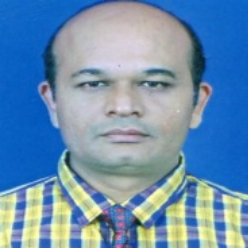
Biswaranjan Sarangi
Work place: Biju Patnaik University of Technology (BPUT), Department of CSE, Rourkela, 769015, Odisha, India
E-mail: biswaranjan.sarangi@gmail.com
Website: http://orcid.org/0000-0002-8999-2194
Research Interests: Computational Learning Theory, Neural Networks
Biography
Biswaranjan Sarangi (Research Scholar) in Biju Patnaik University of Technology (BPUT), Odisha, (India) completed his M. Tech in Computer Science & Engineering from F.M. University, Balasore, Odisha and pursuing his Ph.D. in Computer Science & Engineering under BPUT. His current research interest is machine learning & AI, neural network, and wireless sensor networks. He is currently working as Asst. Professor and Head in Dept. of CSE, Synergy Institute of Technology, Bhubaneswar (India).
Author Articles
Outlier Detection Technique for Wireless Sensor Network Using GAN with Autoencoder to Increase the Network Lifetime
By Biswaranjan Sarangi Biswajit Tripathy
DOI: https://doi.org/10.5815/ijcnis.2023.01.03, Pub. Date: 8 Feb. 2023
In wireless sensor networks (WSN), sensor nodes are expected to operate autonomously in a human inaccessible and the hostile environment for which the sensor nodes and communication links are therefore, prone to faults and potential malicious attacks. Sensor readings that differ significantly from the usual pattern of sensed data due to faults in sensor nodes, unreliable communication links, and physical and logical malicious attacks are considered as outliers. This paper presents an outlier detection technique based on deep learning namely, generative adversarial networks (GANs) with autoencoder neural network. The two-level architecture proposed for WSN makes the proposed technique robust. The simulation result indicates improvement in detection accuracy compared to existing state-of-the-art techniques applied for WSNs and increase of the network lifetime. Robustness of outlier detection algorithm with respect to channel fault and robustness concerning different types of distribution of faulty communication channel is analyzed.
[...] Read more.Other Articles
Subscribe to receive issue release notifications and newsletters from MECS Press journals